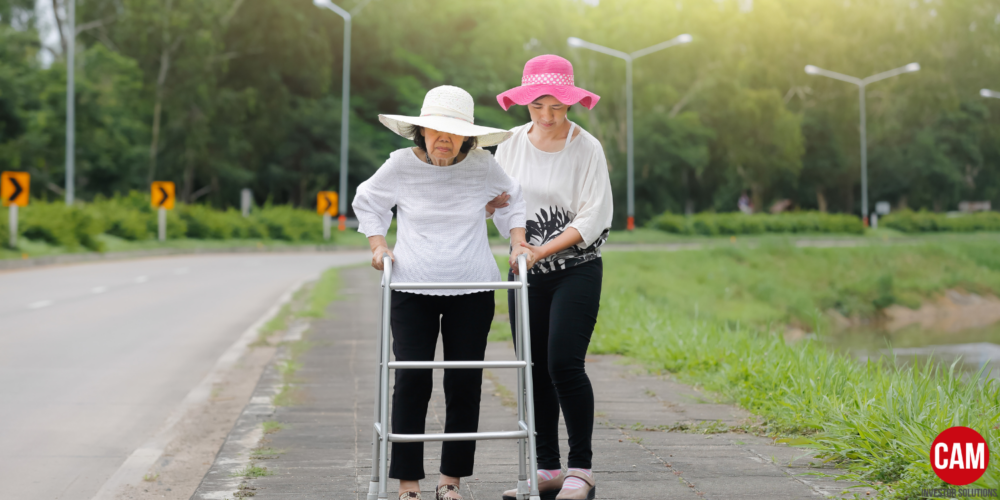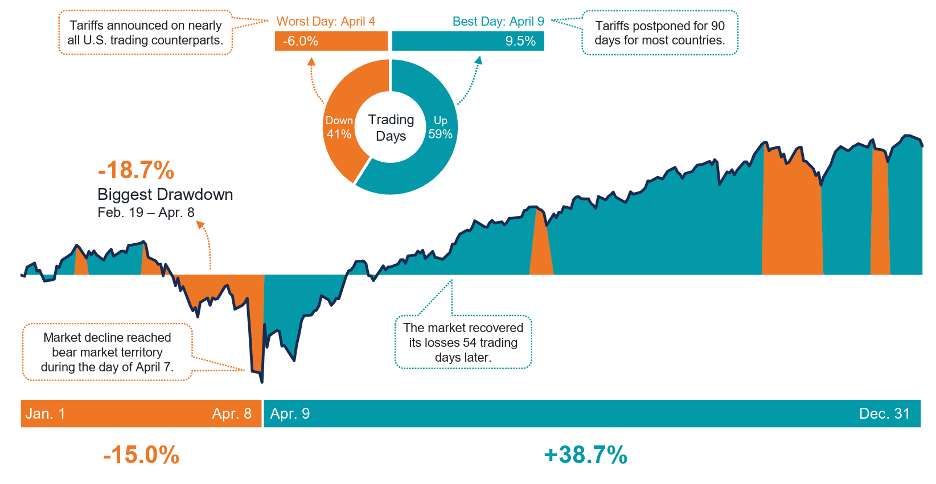We’ve said before that the most dangerous four words in investing…

Filial Loyalty: What Adult Children Do for Their Elderly Parents
Culture in the U.S. is described as individualistic, whereas it is described as collectivistic in China. Psychologist Geert Hofstede defines individualism as “a preference for a loosely-knit social framework in which individuals are expected to take care of only themselves and their immediate families.” He defines collectivism, its opposite, as “a preference for a tightly-knit framework in society in which individuals can expect their relatives or members of a particular in-group to look after them in exchange for unquestioning filial loyalty.”1
The U.S. ranks first in individualism among 88 countries, whereas China ranks 65th — closer to the collectivistic end.
The collectivistic culture of China includes “filial loyalty,” a cultural contract built on the premise that parents do everything to care for their children and then end their lives in their children’s care. Where filial loyalty is strong, no Social Security system or nursing homes are needed.
Reverence for elderly parents is indeed prominent in China. “When my parents see something that they like but couldn’t bear to buy, I can see it in their eyes when they put it down after picking it up,” said Jihong, a 55-year-old Chinese woman quoted in my recent book, “A Wealth of Well-Being.”2 They decline Jihong’s offer to buy it for them, but she buys it secretly and when her parents see it, “That happiness on their faces makes me feel that no matter how much I spend, being able to grow old with them is truly happiness for me.”
There’s More Filial Loyalty in the U.S. Than You Might Expect
The individualistic culture of the U.S. is reflected in the words of Jeffrey, a 60-year-old American man. He and his wife are not expecting any inheritance from their parents, and their children know that they cannot expect much of an inheritance from their parents. “If they are working and still living with us, we expect some kind of rent to help out with expenses.”
Yet filial loyalty is practiced in the U.S. more than preached, evident in the prevalence of the “sandwich generation” of parents stressed financially and emotionally as they care for both young children and elderly parents.3 Cash transfers from adult children to elderly parents in the U.S. understate the total support the young provide to the old because much of that support is in-kind, such as in caring for elderly parents in their own homes or in their children’s homes.4
A survey of American caregivers highlighted some of their sacrifices: 25% dipped into their retirement savings, 41% dipped into their personal savings, 25% spent 40 hours per week caregiving, and 45% of those who had outside jobs used some or all their vacation time for caregiving. Caregivers have also sacrificed leisure activities and time with friends and family.5 Having elderly dependents decreases the probability of stock holdings and college savings by twice as much as poor personal health.6
Caregiving Takes a Toll
Becoming a burden on their families is one of the biggest fears of seven in 10 elderly. Yet more than eight in 10 elderly plan to rely on family for care, most often by spouses or children. Tanya Brice, a 43-year-old single mother, cares for her medically fragile mother, her twin toddlers (one of whom has autism and an intellectual disability), and a teenage son. Her budget, consisting of a social worker’s salary, and her schedule are at a breaking point. Brice manages to pay for rent, utilities and food, but cable, extracurricular activities and everything else, are beyond her means. Indeed, sometimes even food is lacking.7
The financial and career stress of caring for both children and parents can weigh heavily on relationships. Amanda Mayo, a 40-year-old mother of 3-year-old and 6-year-old children, also cares for her in-laws, who live with her and her husband. She also makes frequent trips out of state to care for her grandparents. “I’ll be honest, it almost broke our marriage,” she said. Mayo and her husband worry about their future, with no safety net and no parents to bail them out.
Yet caring for elderly parents can bring rewards. A man wrote: “Choosing to care for my mom for 25 years influenced every job I took and had a negative effect on my career.” He spent very little on himself and all his extra earnings went toward his mother’s living expenses and care. “I sacrificed my personal life and general happiness in order to do this. I would do it again, too. It was the right thing to do.”
Providing Care Without Overstepping Boundaries
Help from adult children to elderly parents can bring them together, yet conflicts often accompany help. Elderly parents hope their adult children will help if needed, and they appreciate their children’s concerns, but they also want autonomy and can grow annoyed by their children’s overprotectiveness.8
Elderly parents use a range of strategies to deal with their ambivalent feelings, including being stubborn, minimizing the help they receive, ignoring or resisting children’s attempts to control them, maintaining clear boundaries by withholding information from children and seeking others as confidants.
A 75-year-old man admitted that adult children might be right. It is hard to adjust to old age, he said, but adjustment is necessary. “So why not try to be positive about it.” Now, when his 50-year-old daughters disagree with him, he remembers that they might be right, and he might be wrong. “I installed a grab bar in our shower. … I got rid of the old gun in the house.”
Older parents need transportation, but many are reluctant to use ride-hailing services such as Uber and Lyft. A reader offered an example of that reluctance in her experience as a caretaker of both her mother and grandmother, neither of whom can drive. “I am burned out completely after two years of being their driver,” she wrote. “They refuse to try a ride-hailing service though my mom is an avid iPhone user. Socially and emotionally, they would be better knowing they don’t need to be housebound. I give up.”
Another found a way to teach his stepfather how to use a ride-hailing service. His stepfather looked at him like he had grown a second head when he first suggested Uber. “But I took him to dinner a few times … and then downloaded the app on his phone. The next couple of times we went out, I had him order it up. Now he can order one when he wants or deems necessary.”
Respecting the Loyalty of Caregivers
While feelings of filial loyalty vary among cultures and individuals, many do feel a strong obligation to their elderly parents. We can better serve those in our professional and social circles by being aware and respectful of the duty others may feel toward their parents and understanding the potential impacts that can have on their financial and broader life wellbeing.
Source Disclosure
Source: Avantis Investors, Meir Statman, Ph.D.
1MediaCom and the Hofstede Center, “A Background to Hofstede’s Cultural Dimensions,” April 4, 2017.
2Meir Statman, A Wealth of Well-Being: A Holistic Approach to Behavioral Finance (Hoboken, New Jersey, Wiley, 2024).
3Jessica Grose, “‘It’s Pretty Brutal’: The Sandwich Generation Pays a Price,” New York Times, February 18, 2020.
4Sudipto Banerjee, “Intra-Family Cash Transfers in Older American Households,” EBRI Issue Brief, no. 415 (June 2015). Available at SSRN.
5Richard Eisenberg, “Parents’ Support to Adult Kids: A Stunning $500 Billion a Year,” Next Avenue, October 2, 2018.
6Vicki L. Bogan, “Household Asset Allocation, Offspring Education, and the Sandwich Generation” (October 2014). Available at SSRN.
7Aidan Gardiner, “‘I Put My Own Life on Hold’: The Pain and Joy of Caring for Parents,” New York Times, September 5, 2019.
8Glenna Spitze and Mary P. Gallant, “‘The Bitter with the Sweet’: Older Adults’ Strategies for Handling Ambivalence in Relations with Their Adult Children,” Research on Aging 26, no. 4 (2004): 387–412.
CAM Disclosure
M & A Consulting Group, LLC, doing business as CAM Investor Solutions is an SEC registered investment adviser. As a fee-only firm, we do not receive commissions nor sell any insurance products. We provide financial planning and investment information that we believe to be useful and accurate. However, there cannot be any guarantees.
This blog has been provided solely for informational purposes and does not represent investment advice. Nor does it provide an opinion regarding fairness of any transaction. It does not constitute an offer, solicitation or a recommendation to buy or sell any particular security or instrument or to adopt any investment strategy.
Past performance is not a guarantee of future results. Diversification does not eliminate the risk of market loss. Tax planning and investment illustrations are provided for educational purposes and should not be considered tax advice or recommendations. Investors should seek additional advice from their financial advisor or tax professional.



